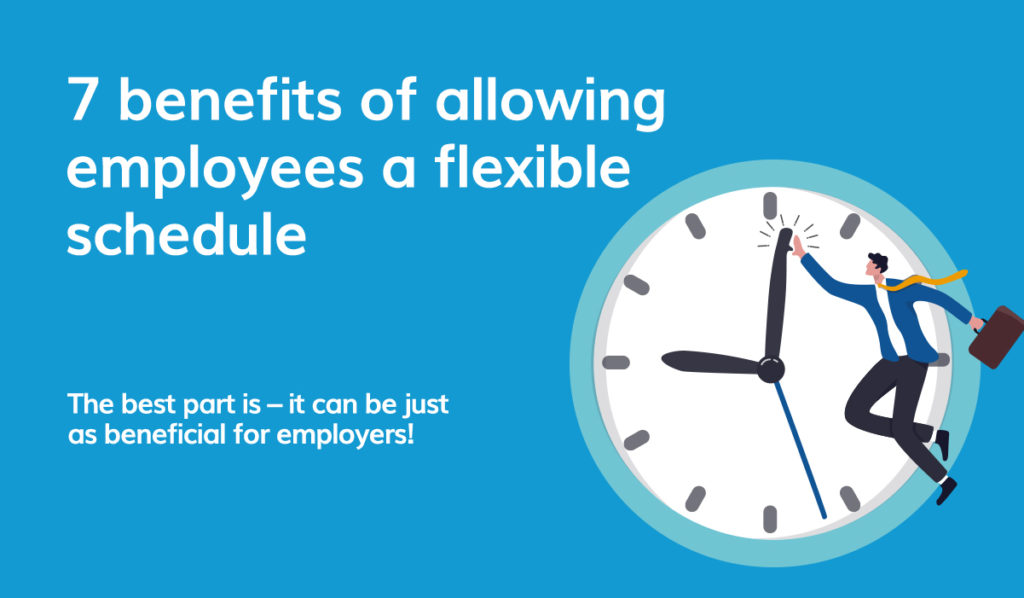The flexible schedule is one of the most in-demand benefits for employees. The best part is – it can be just as beneficial for employers. Many may associate a flexible schedule with remote work, but that doesn’t have to be the only configuration. In this article we will be looking into the benefits of adopting a flexible schedule.

It’s a benefit which attracts top talent
Not all companies offer it, and because you do, it will give you the edge in a highly competitive market. It may just tip the balance in your favour in the recruitment process if you allow for a flexible work arrangement. Some roles expect it – designers, developers, creatives, software engineers and recruiters are some of the workers who will benefit greatly from a flexible schedule. It will quickly make you the employer of choice as it is most definitely a recruitment advantage.
Increases productivity
If employees can work according to their schedule, they are more likely to give their best work as they understand themselves better. Happier employees are more likely to get more done.
Improved health and wellbeing
Having the option to choose to avoid the morning rush hour will definitely improve the employee’s standard of living. It’s a less stressful scenario and they’re still putting in their hours, with the added benefit that it is a more eco-friendly and cost-efficient option. It’s a win-win situation.
Improves retention and morale
Simply allowing for a flexible work schedule will increase job satisfaction, engagement and reduce absenteeism and tardiness. Happier employees are far more likely to keep their jobs long term and come to work in good spirits.
Avoids burnout
The modern world keeps us connected 24/7 and one survey found that 44% of employees reported feeling burnt out at least some of the time. Flexible work hours give the employee some control over their lives. After all we do spend a large portion of our lives on the job!
Shows compassion
Sometimes life happens, you need to get a new fridge delivered, or your car broke down or you have a doctor’s appointment. Employees shouldn’t have to take time off for the inevitable. A flexible schedule shows you are understanding and allows employees to still put in their hours. And get this – they are still getting their work done.
A project-based approach
Many do not respond well to micromanaging and controlled work hours, (unless of course it is crucial for the job in question), are a form of micro-managing. The future is project-based and as long as your employees are meeting deadlines and reaching targets setting a fixed schedule is an unnecessary encumbrance. A flexible schedule builds an environment of mutual trust and appreciation. You are managing outcomes and results, not inputs and processes, cultivating a performance-driven culture.
In a post-quarantine era, flexible work is the future and it will benefit your company if you’re one step ahead of the curve.

